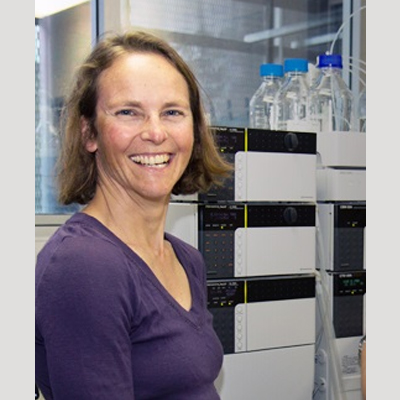| Leading up to the Congress in Brisbane, we will hear from top colleagues from Down Under. This month, Jenny Martin shares about her experiences in developing assays for oncology treatments, where toxicities can be devastating, and personalization of therapy can make a big difference. Jenny will be presenting at the ‘Education in TDM and CT Symposium’, the first time this important topic has a dedicated space in one of our congresses. She will also be chairing two symposia on the hot topic, Medicinal Cannabis (see preliminary program).
Jennifer Martin
Chair of Clinical Pharmacology
School of Medicine and Public Health
University of Newcastle, AU |
Can you tell us a little bit about your respective roles? What is a typical day like for you?
Seeing patients (internal medicine), clinical pharmacology and toxicology consults, teaching medical students, undertaking research, sitting on policy committees and advising Government.
Is there anything that your laboratory does, or that is done at your hospital or centre, that you would consider innovative?
Yes, quite a bit. We are developing a lot of assays for TDM in cancer but ensuring the TDM service that is set up is actually one that doctors want to use and can access appropriately. We have some novel testing methods for drugs also.
What technological innovations have entered into use during your career that have permitted a change, or evolution, in practice?
IT improvements, mass spec techniques, new immunology molecules
How did you become interested in your area of expertise?
Seeing patients develop significant toxicity from cancer (and other) drugs, and if they died from toxicity, not from cancer (or other) therapy, that seemed pretty unscientific. This spurred us to move into the TDM area.
Is there anything that you’ve seen or heard about recently and thought “I’d like to incorporate that idea at my center”?
The work around high performance teams: we are working on this and enabling our staff to contribute their strengths and work on their weaknesses to improve collaboration, engagement and performance.
What sort of research do you have on the horizon that you think might influence clinical practice in the future?
As our team are clinicians as well as scientists we are working every day on implementing improved science into practice. A lot of good science never translates into improved outcomes and this is not ideal.
What do you consider is the future for TDM and CT? What are you excited about? What are the challenges we face?
Future: there will be more TDM as drugs become registered with less and less evidence and variable response translates into significantly different outcomes, particularly with the immunotherapies which some companies are recommending as fixed dose! TDM thus becomes pivotal. Setting up a TDM service is very tough, though, in the current cost-constrained environment.
The content of the IATDMCT Blog does not necessarily have the endorsement of the Association.



